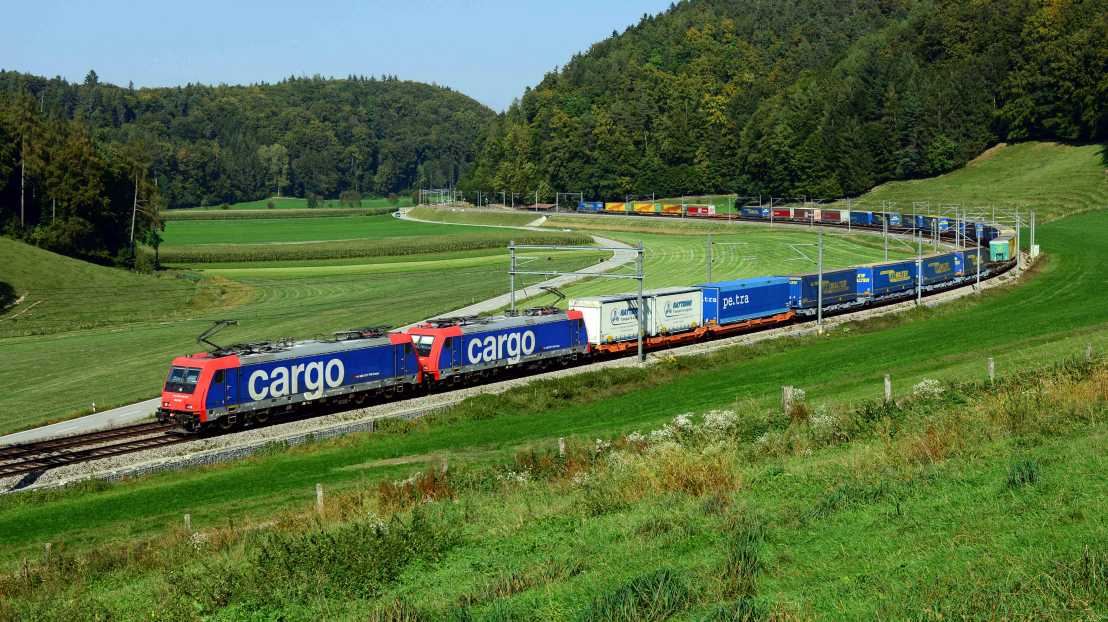New Mobility Initiative projects approved
The Future Mobility Research Program, funded by ETH Zurich and its partners, SBB, and Siemens Mobility, has supported cutting-edge research in future mobility since 2018. The program unites academic and industrial expertise to develop solutions addressing key challenges such as decarbonisation, digitalisation, and infrastructure development.
We're excited to announce that the following projects have been approved and will be launching soon!
ProCargo - Process Optimisation of Rail System Development for Automation of Cargo

This project addresses the challenges of streamlining the development and approval processes for safety-critical railway systems in cargo operations. Traditional processes rely heavily on manual coordination and human-in-the-loop documentation, resulting in inefficiencies and delayed innovation. By analysing current procedures at SBB Cargo and referencing European examples such as the implementation of European Train Control System (ETCS), this project will explore the potential of digital tools, such as large language models, to support documentation and compliance workflows. The goal is to identify how digitalisation can reduce complexity, improve process efficiency, and enable faster implementation of automation technologies in cargo operations. Project details: https://csfm.ethz.ch/en/research/projects/procargo.html
FUTURES - Future Uncertainty in Transportation and Urban systems for Enhanced Strategic Planning

This project will enable future-proof, data-driven planning for transport and urban systems under deep uncertainty. Long-term infrastructure decisions are challenged by unpredictable developments in mobility, technology, and behaviour. By combining qualitative scenario planning with high-resolution agent-based modelling, the project will develop surrogate models to simulate thousands of plausible futures with high computational efficiency. The outcomes will support key actors such as SBB and ARE in identifying adaptive strategies that remain robust under a wide range of future conditions, supporting long-term resilience in Swiss transport planning. Project details: https://csfm.ethz.ch/en/research/projects/futures.html
RaDiCa - Modelling the Impact of Digitalisation on Railway Capacity

This project investigates how digital technologies can unlock additional railway capacity without large-scale infrastructure expansion. Current evaluation methods, based on static, deterministic models, fail to reflect the full benefits of technologies like ETCS, Automatic Train Operation (ATO), or moving-block systems. RaDiCa will develop a probabilistic framework that captures real-world uncertainties, such as disruptions or fluctuating demand, to more accurately assess digital capacity gains. In collaboration with SBB and Siemens, the project will provide a decision-support framework to help infrastructure managers define informed digital investment strategies. Ultimately, it will assistrailway operators by enabling higher efficiency, more reliable operations, and a more sustainable railway system. Project details: https://csfm.ethz.ch/en/research/projects/radica.html
FLEXCON - Demand Flexibility for Congestion Management in the SBB Grid

This project explores the potential of demand flexibility as a key solution to manage future congestion in the SBB electricity grid. Increased and fluctuating energy demand, maintenance activities, and the integration of renewables are placing growing pressure on the grid. FLEXCON investigates how controllable loads, such as heating and cooling in trains, traction, and mobile battery-equipped trains, can support grid stability and efficiency.
The project first identifies critical failure scenarios in the SBB grid by analysing asset failure probabilities and assessing their impact on grid security. These scenarios are then used to evaluate how best to deploy available flexibilities. A central innovation is the use of mobile battery-equipped trains across the Swiss network. These units can dynamically balance the load by feeding into or absorbing power from the grid during peak demand or reduced capacity, helping to prevent overload and voltage issues. Project details: https://csfm.ethz.ch/en/research/projects/flexcon.html